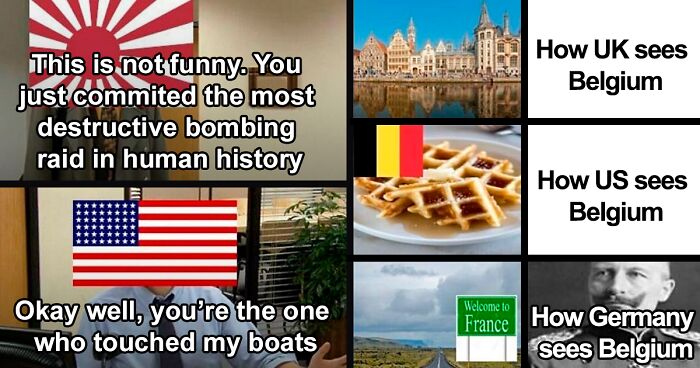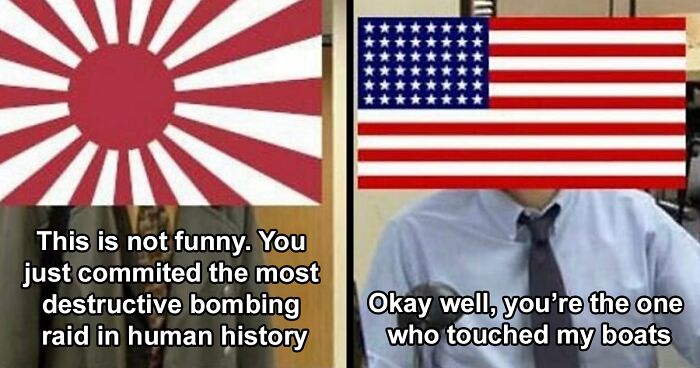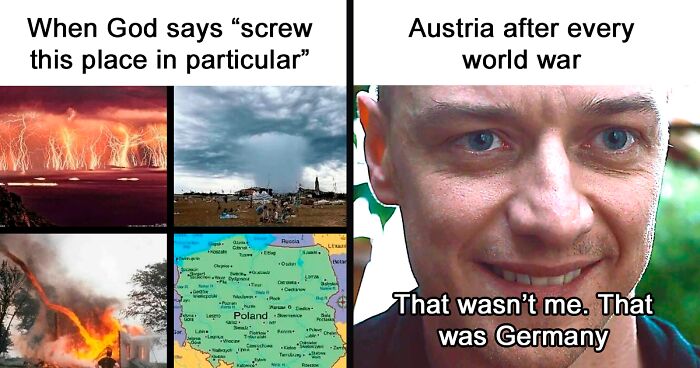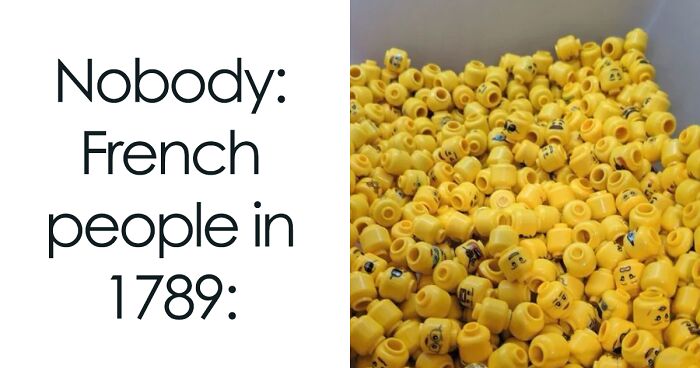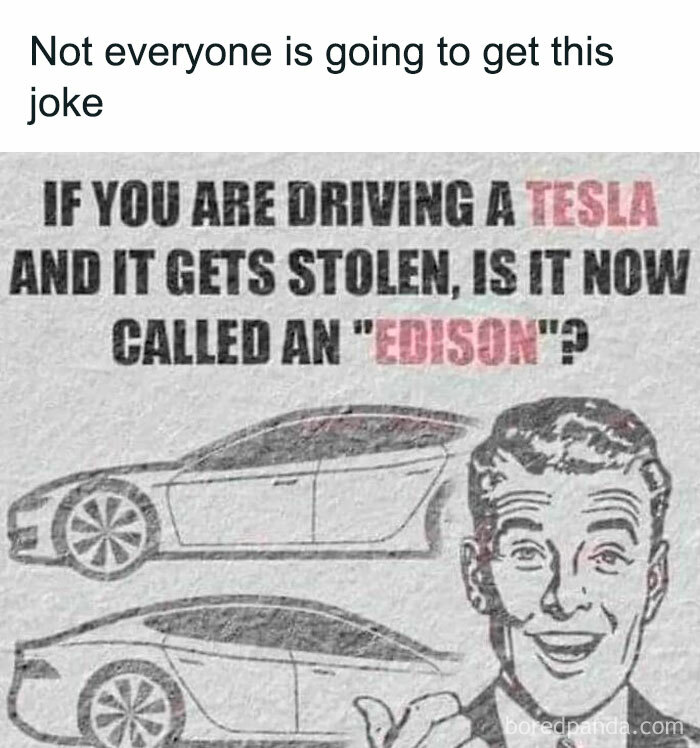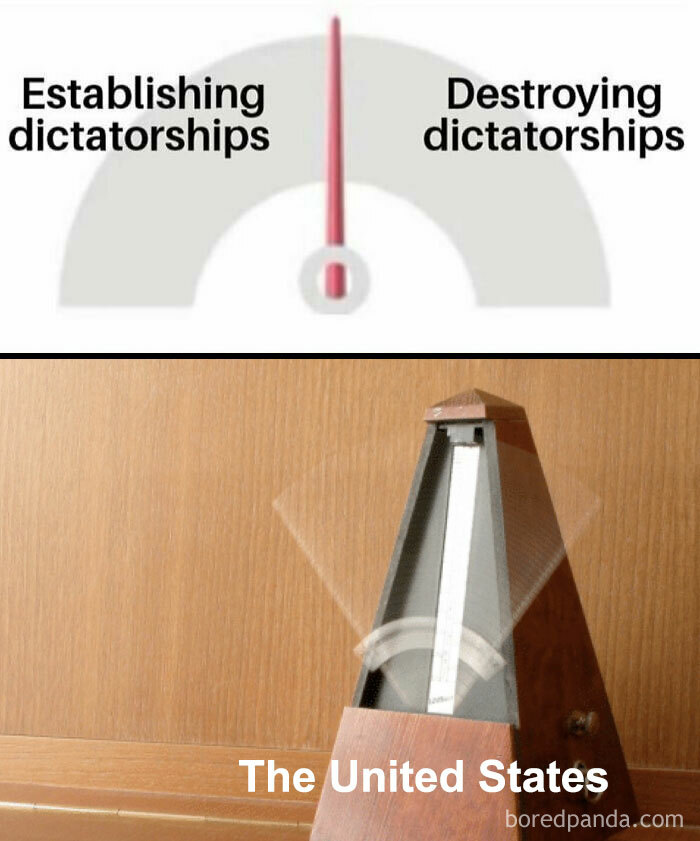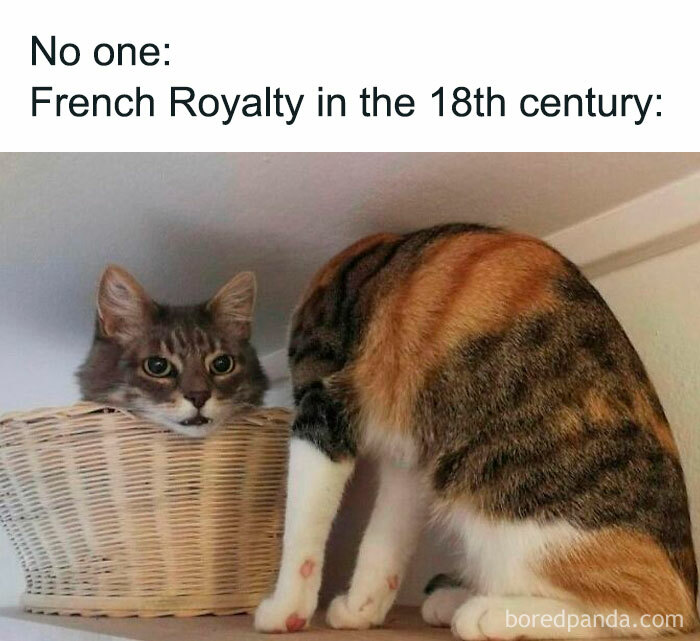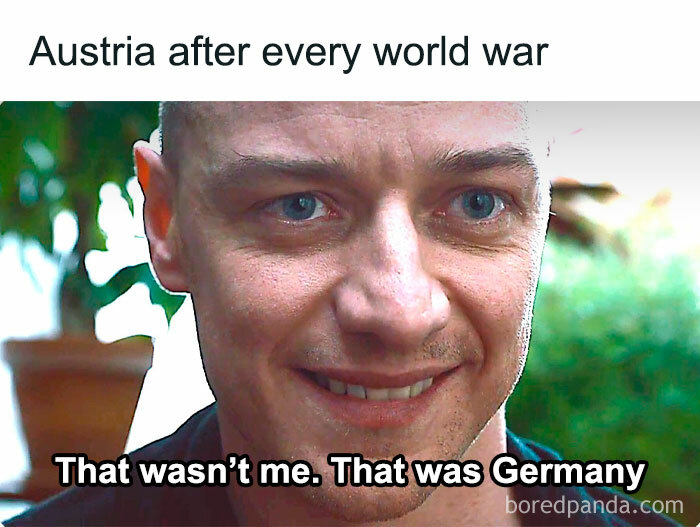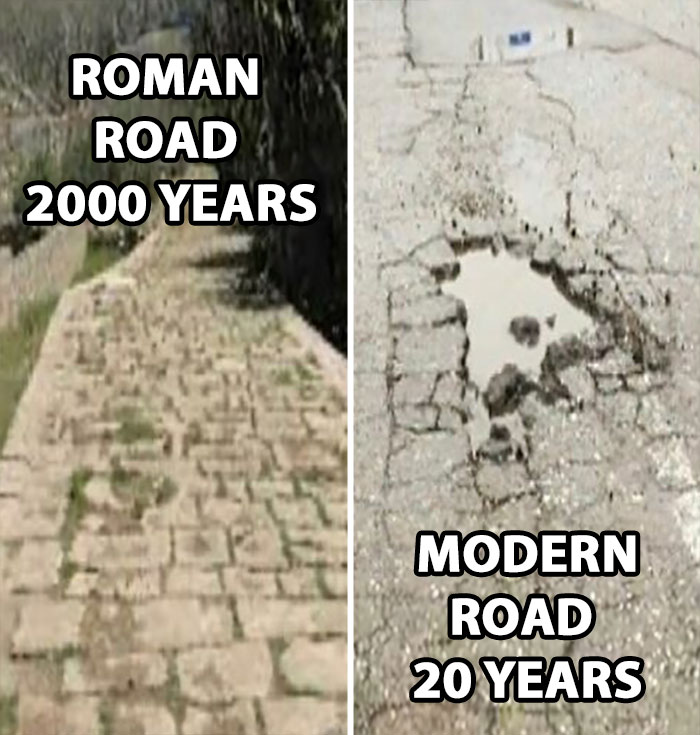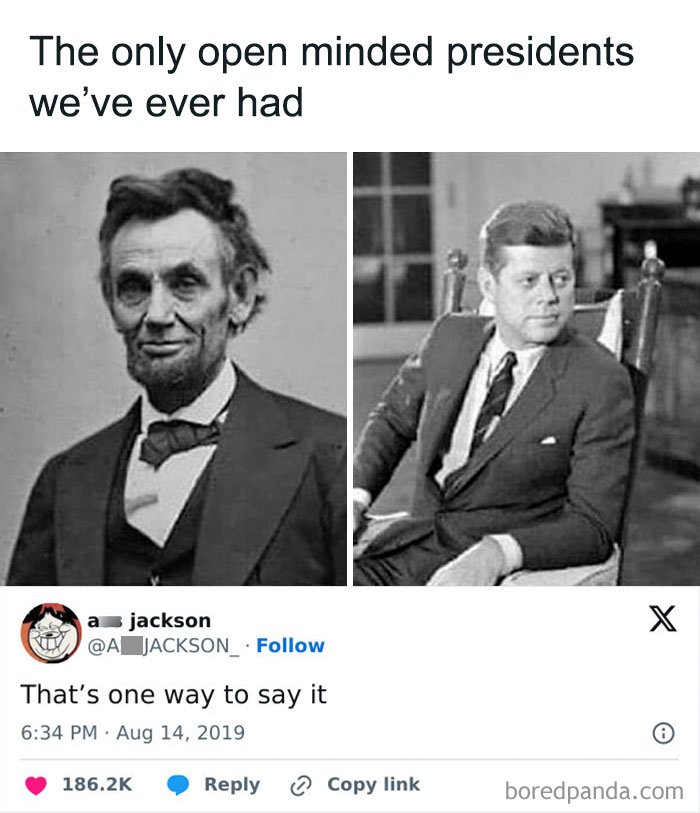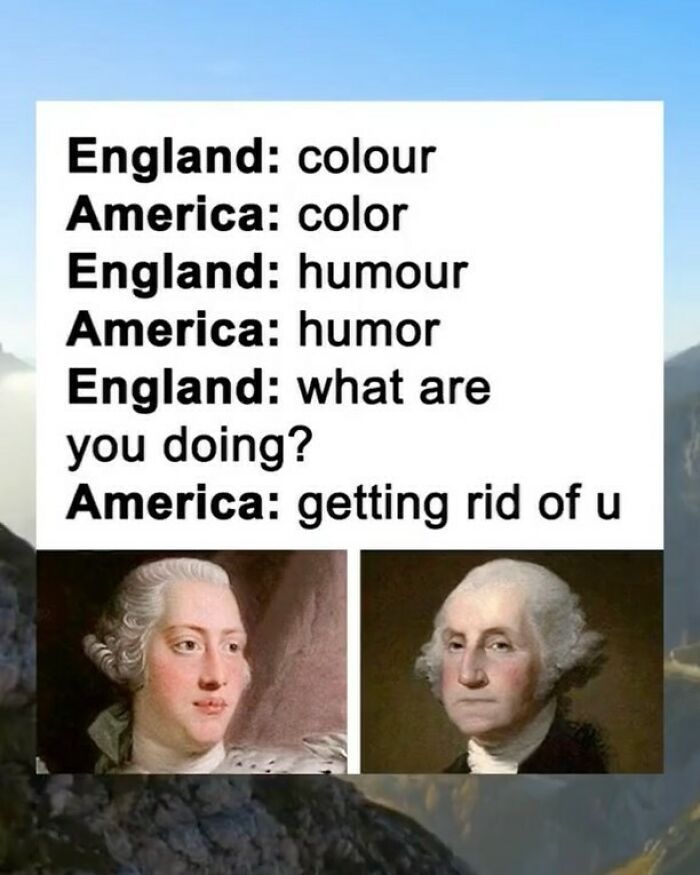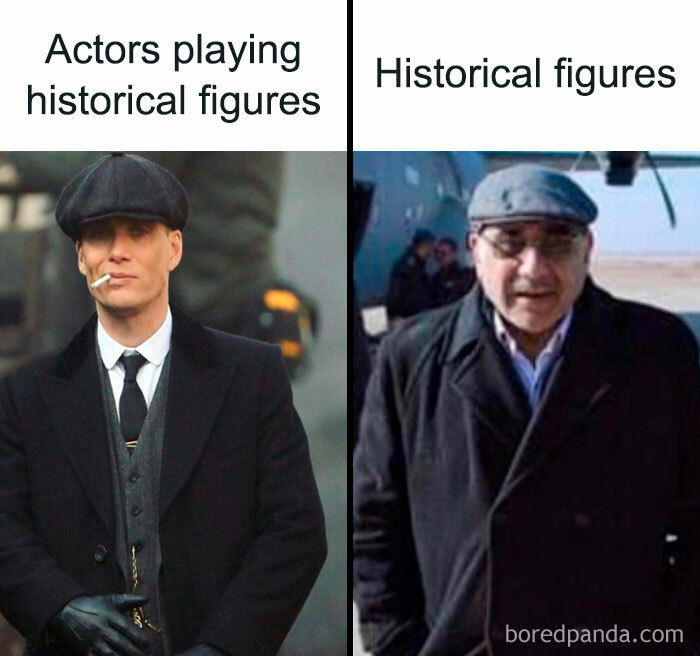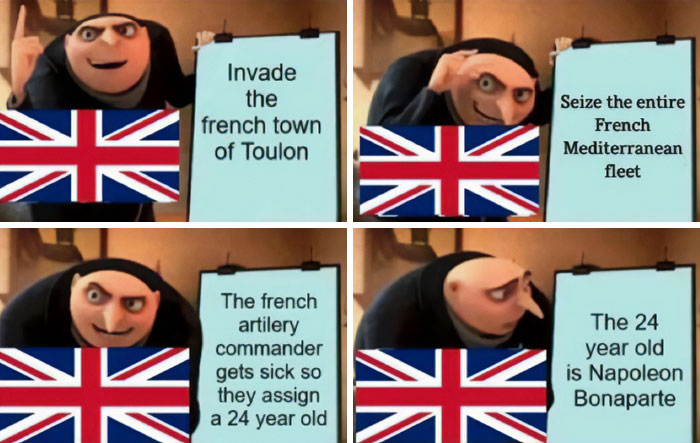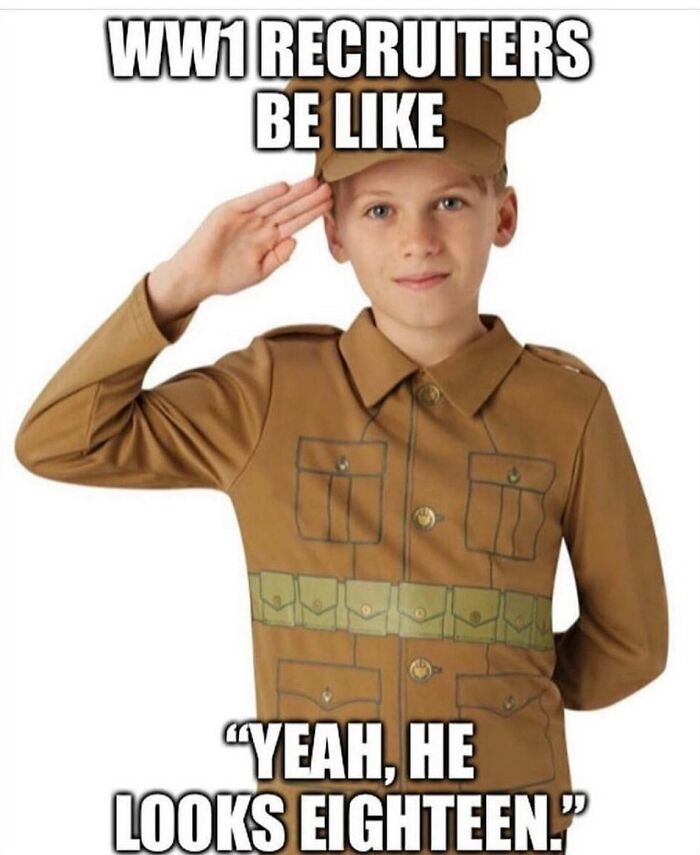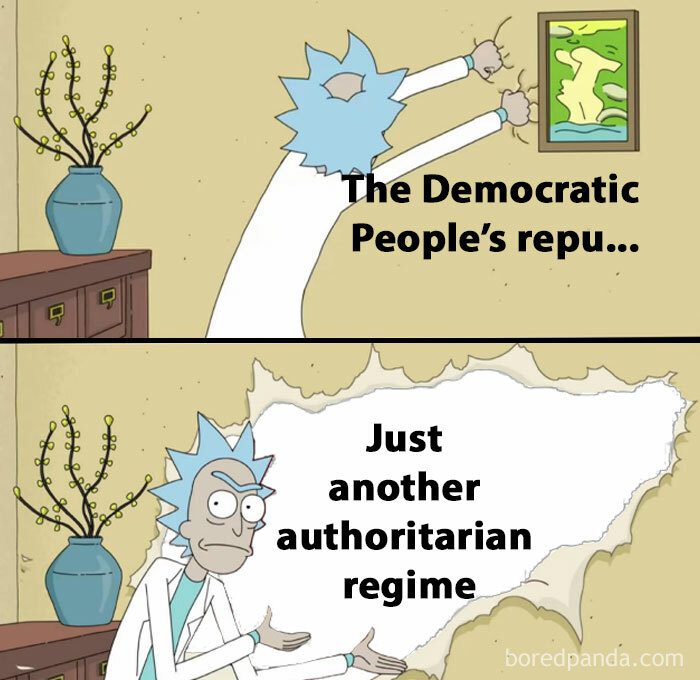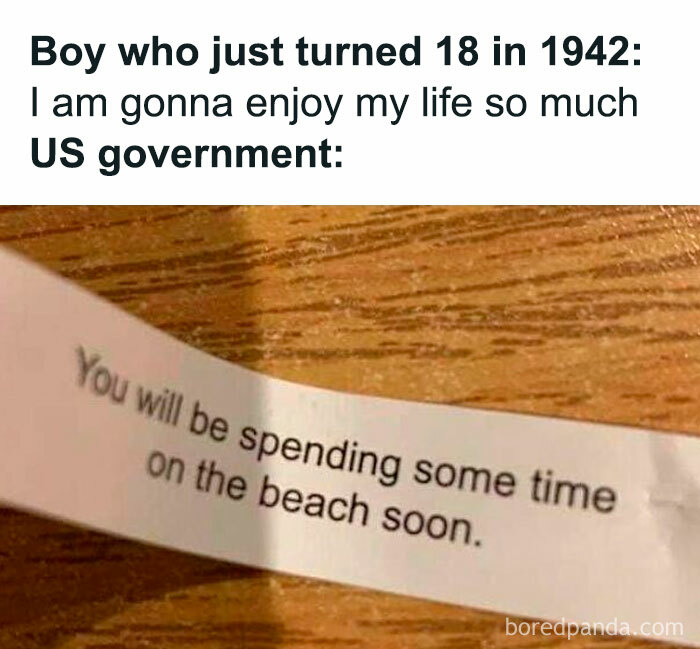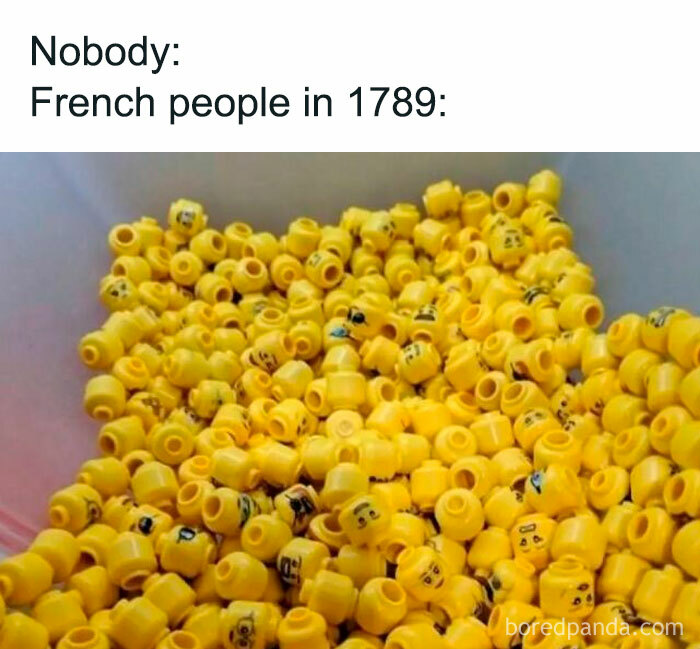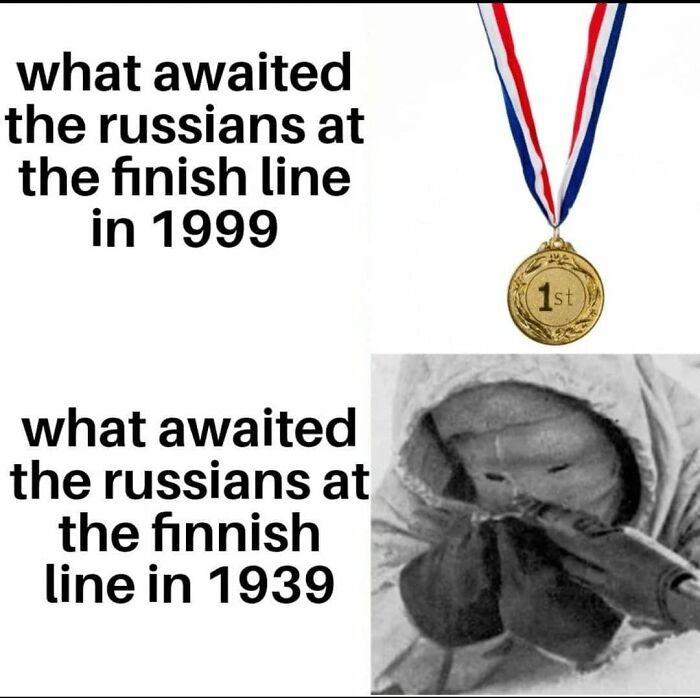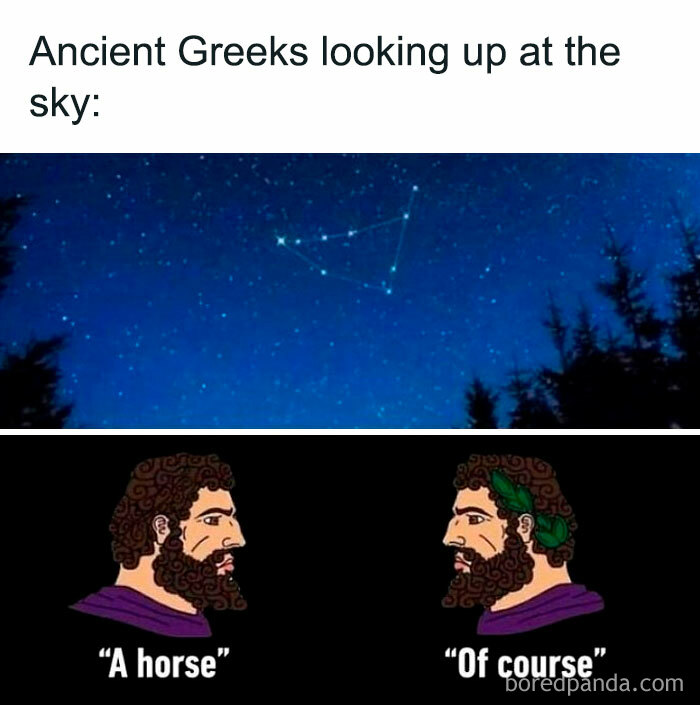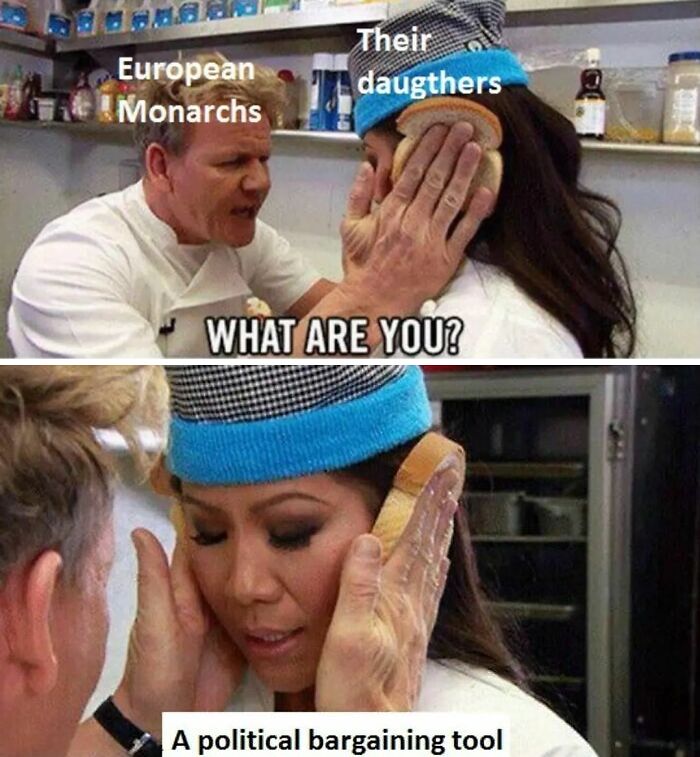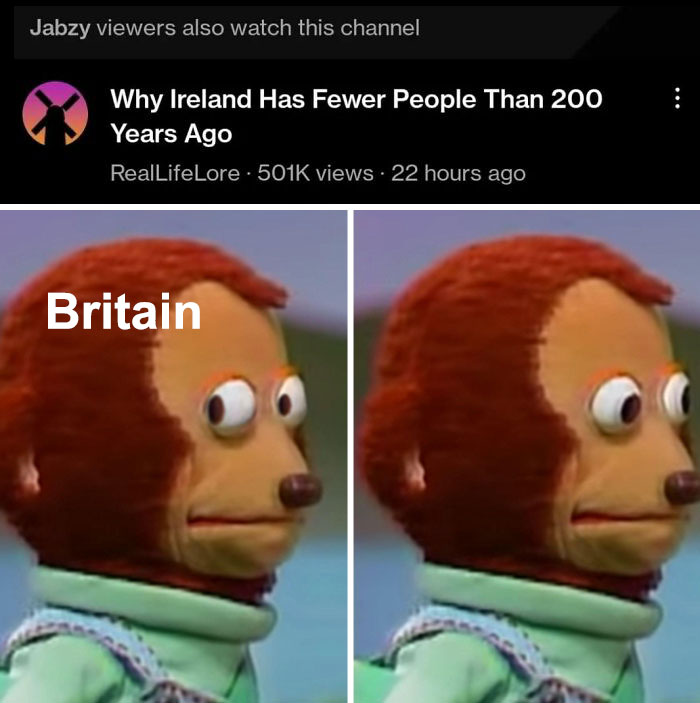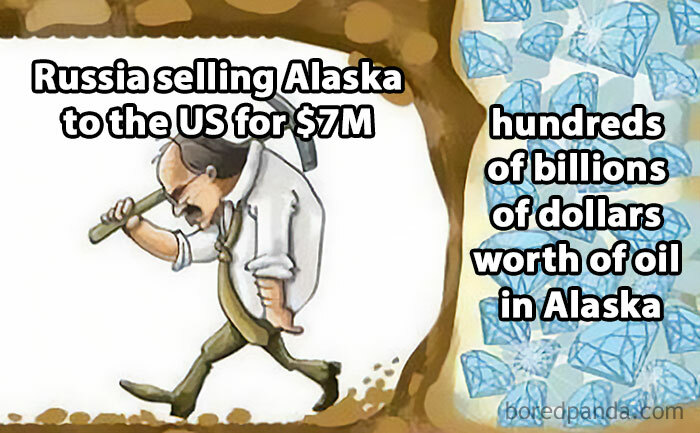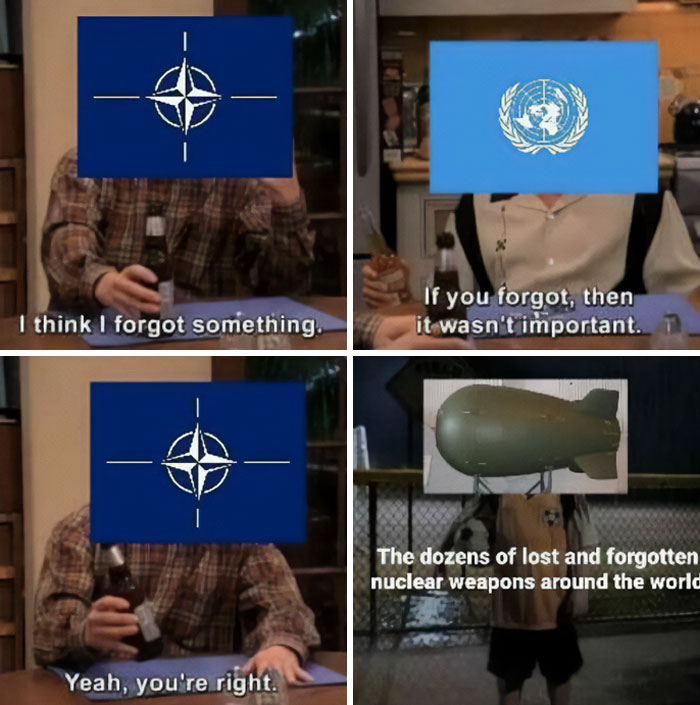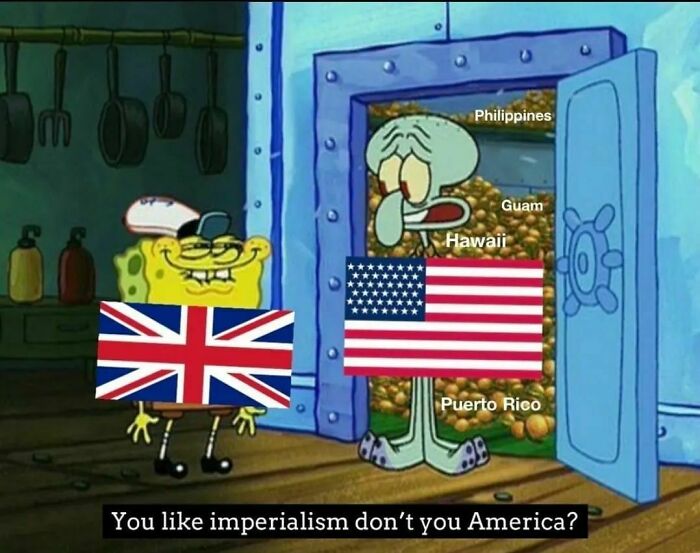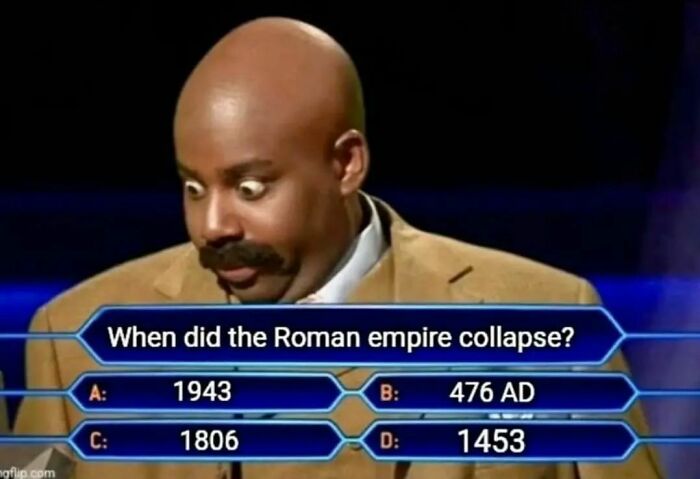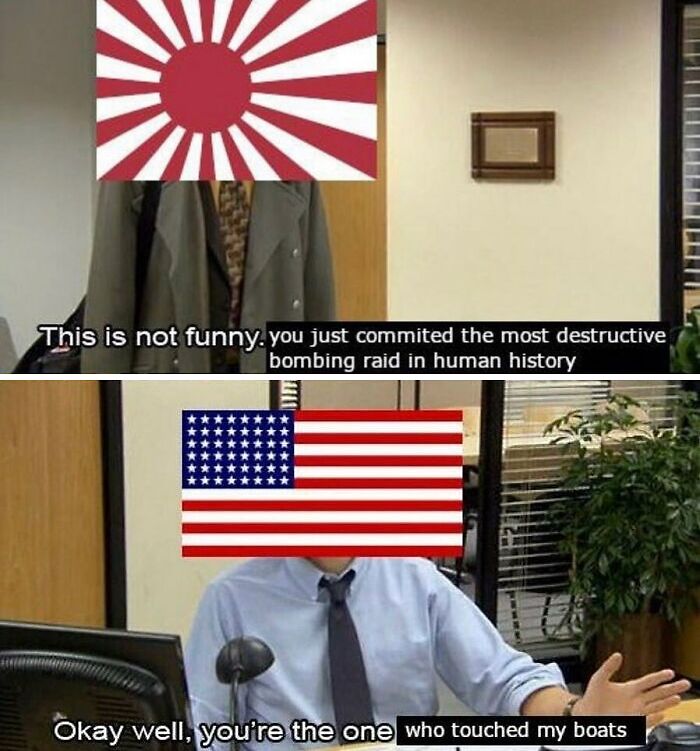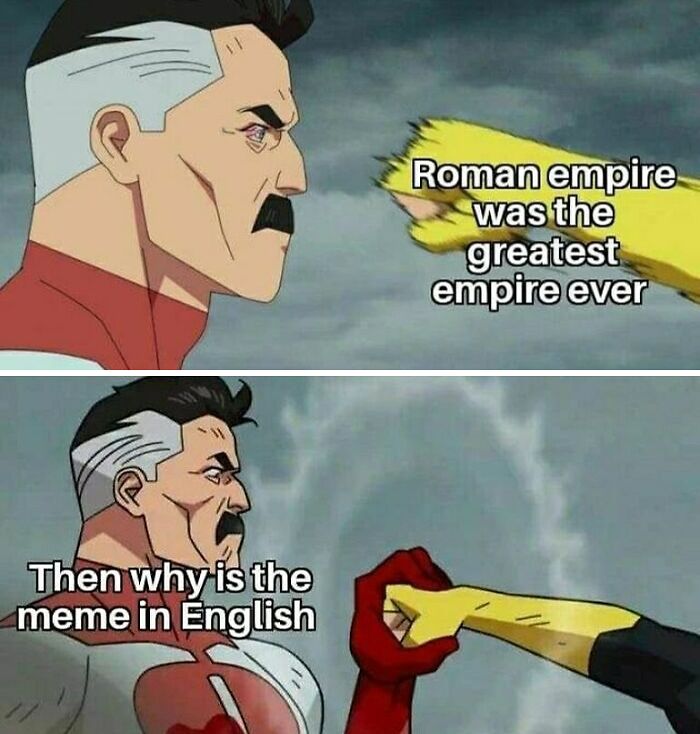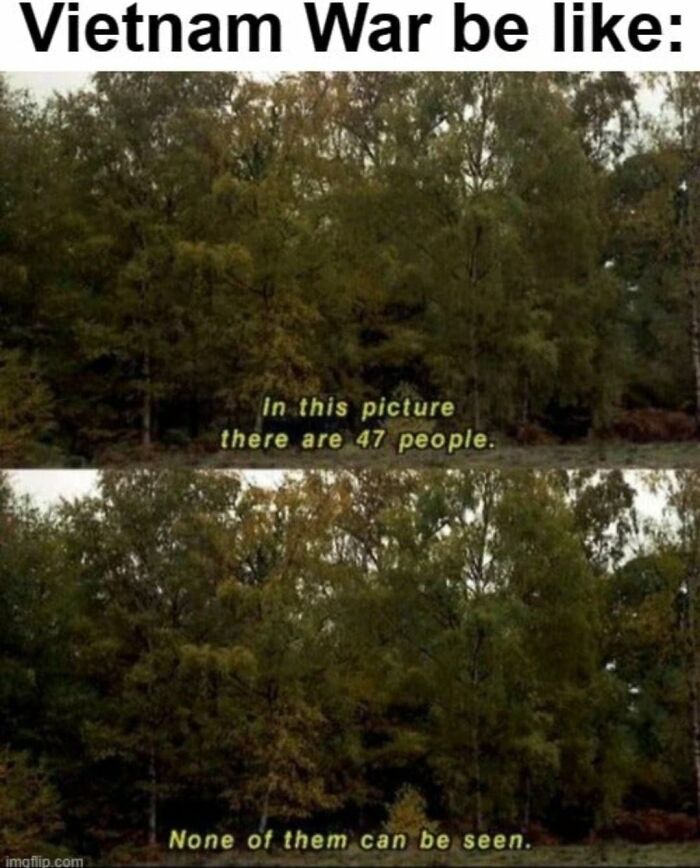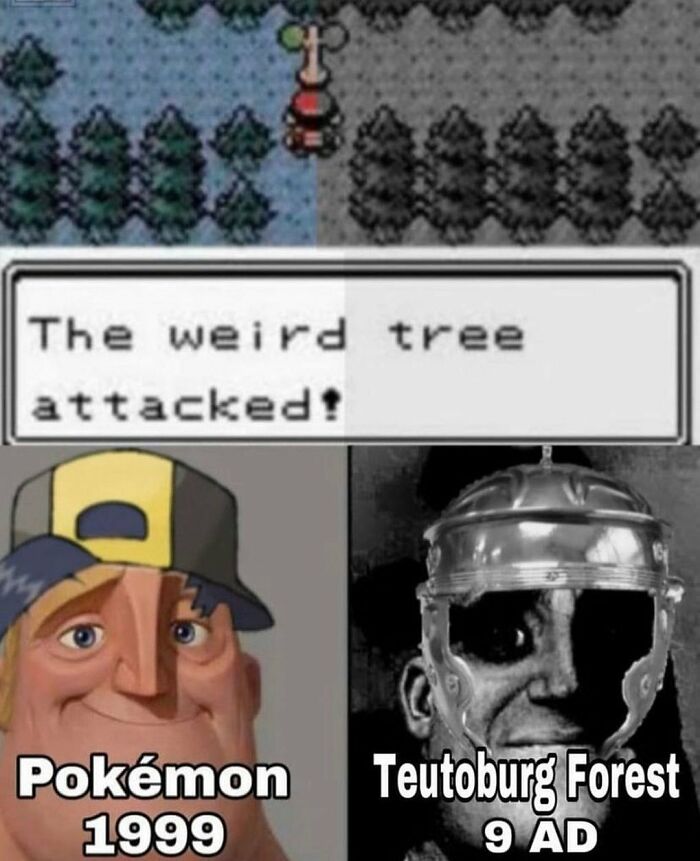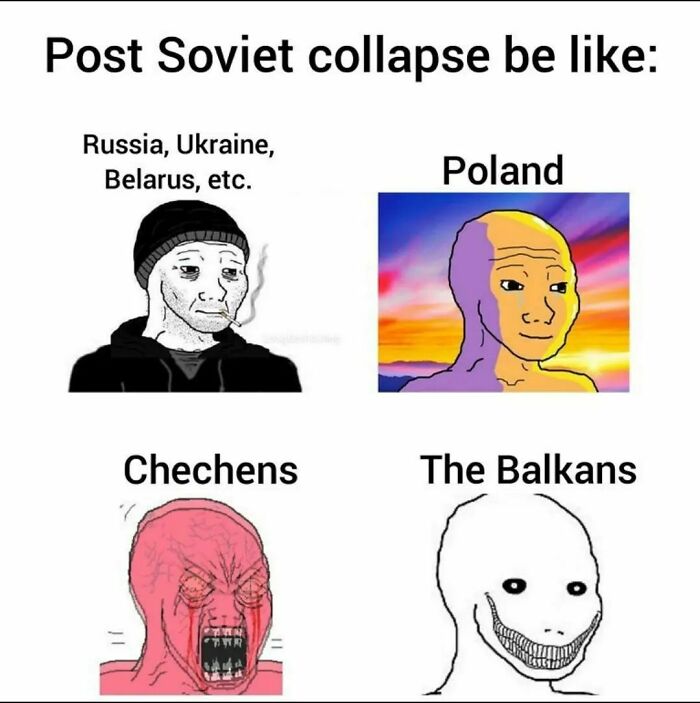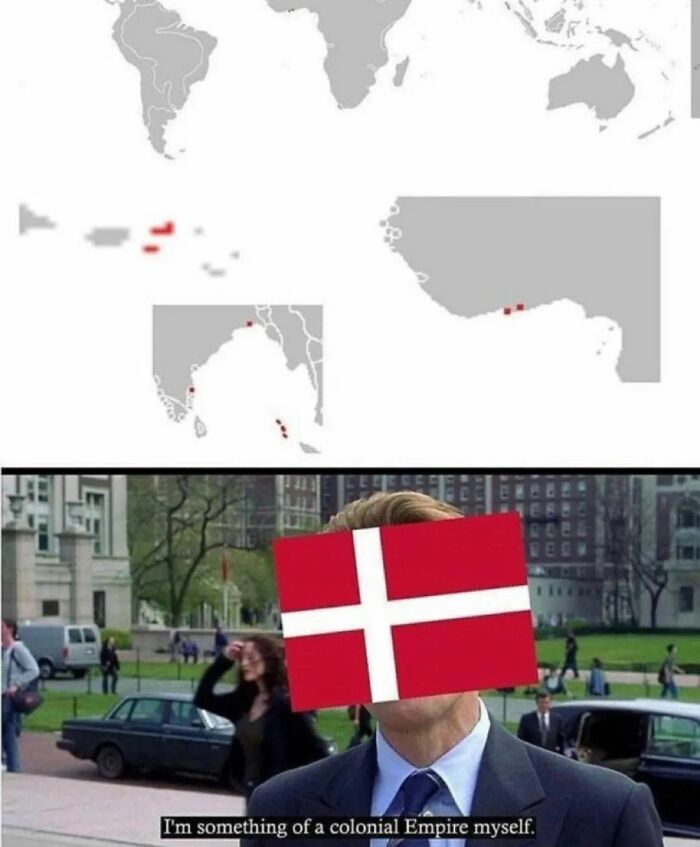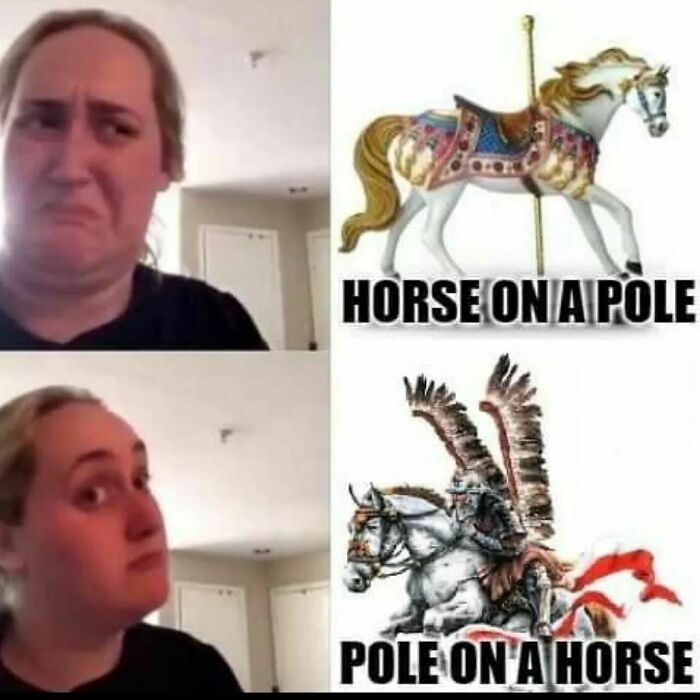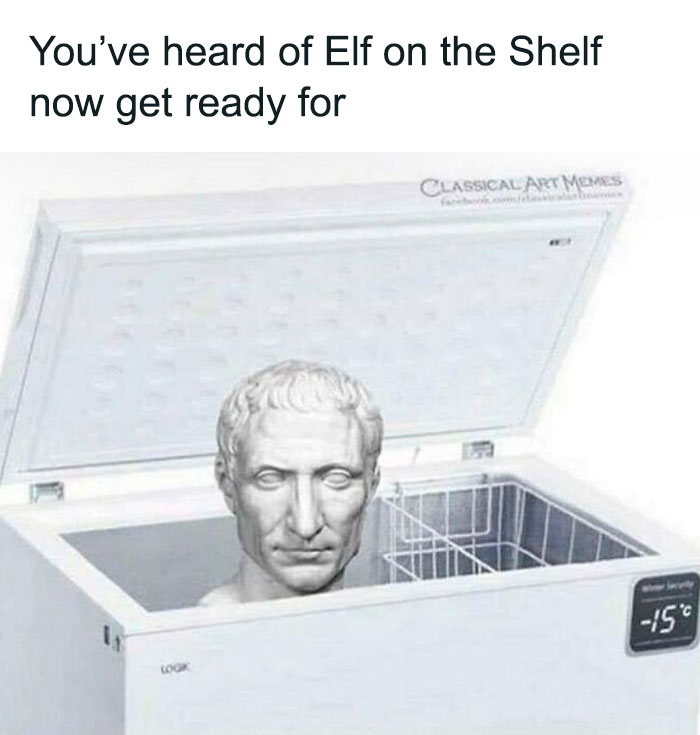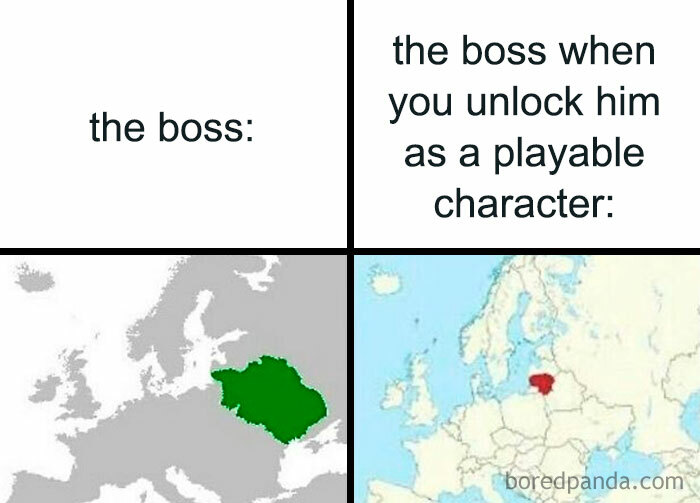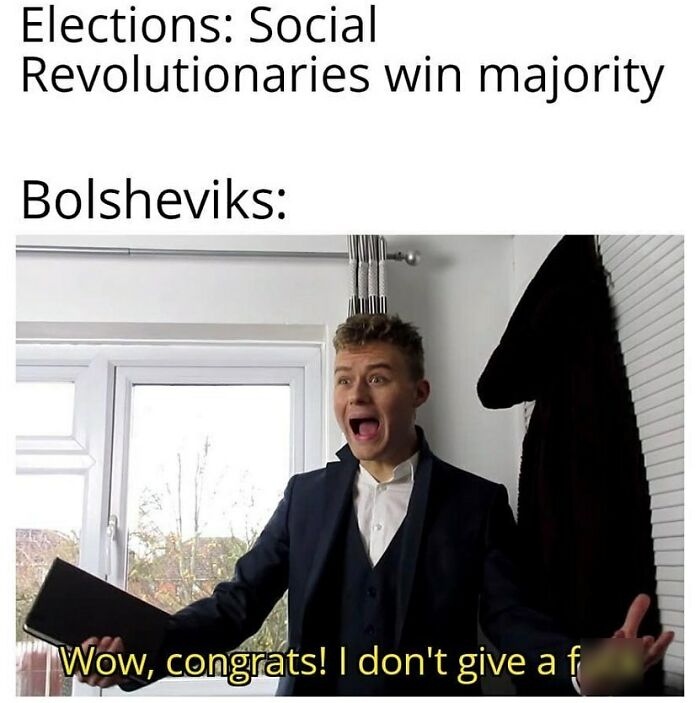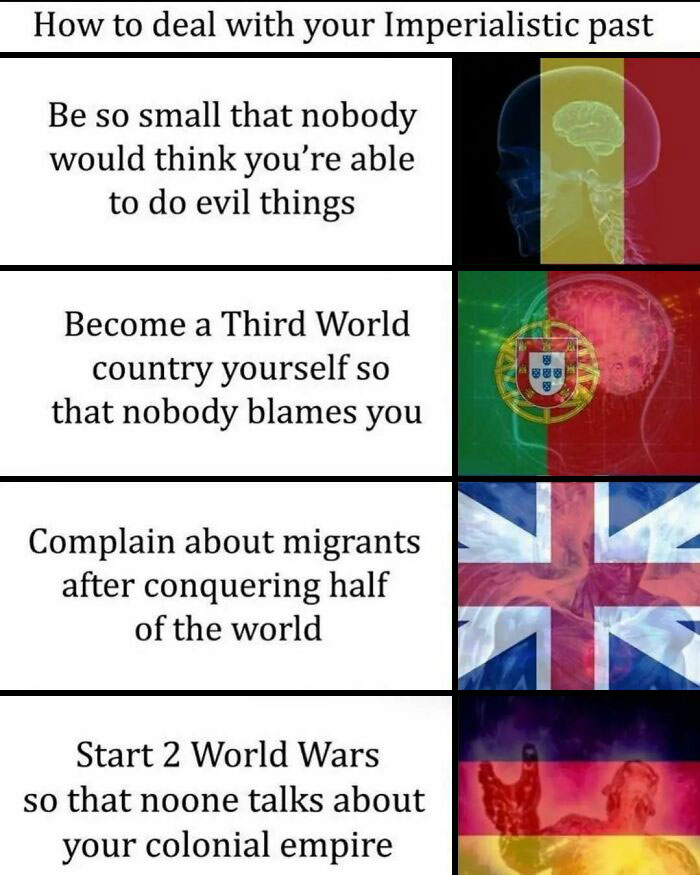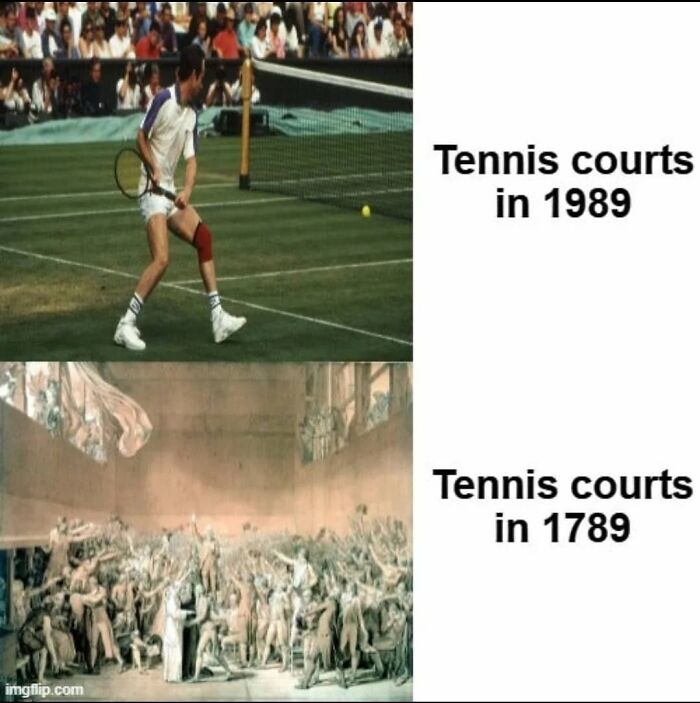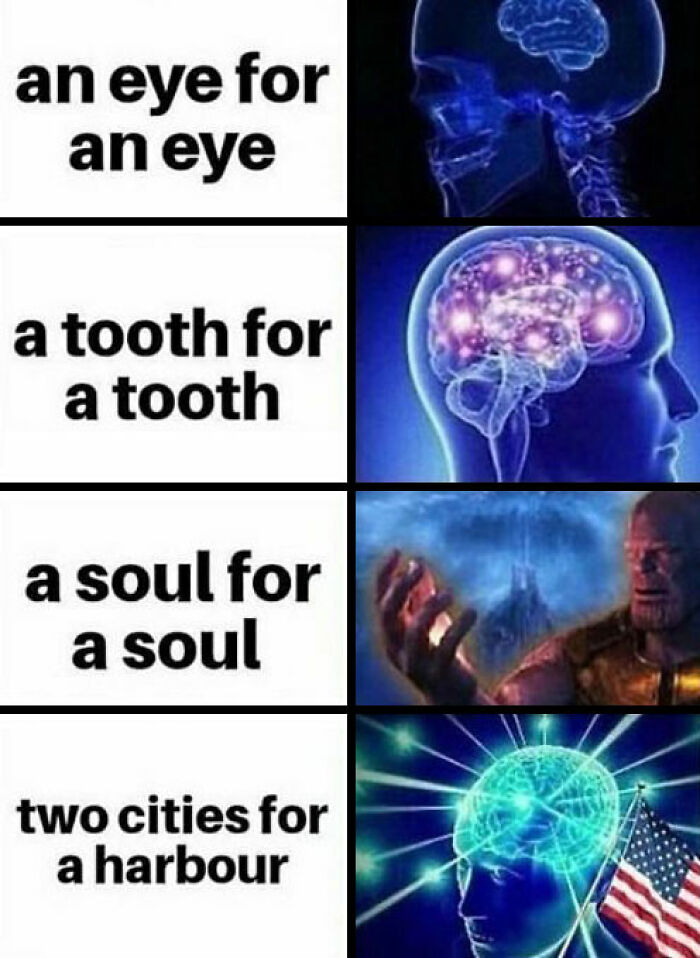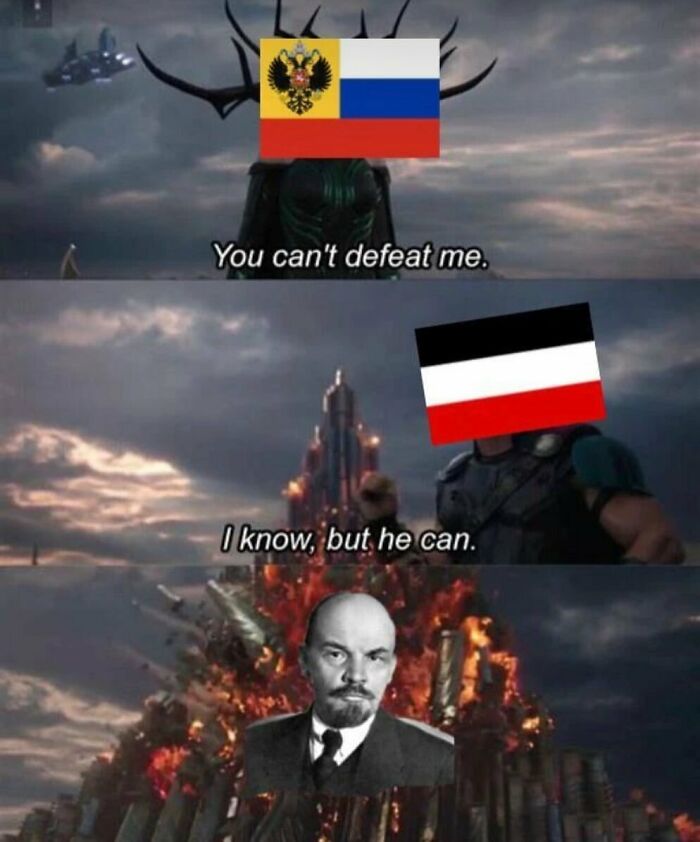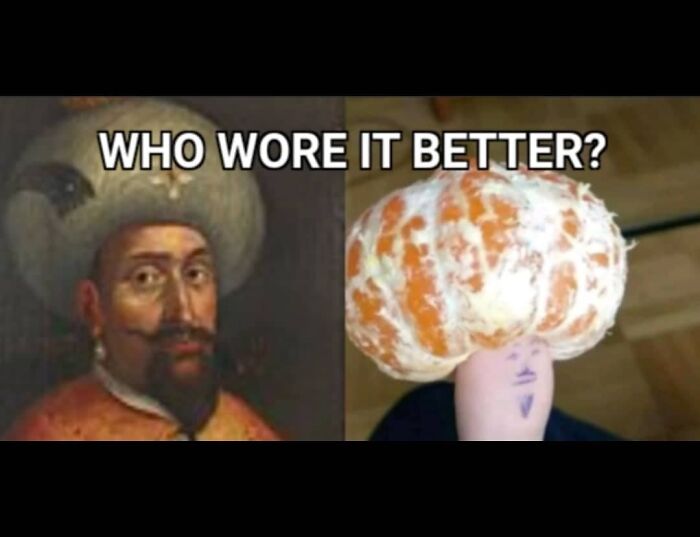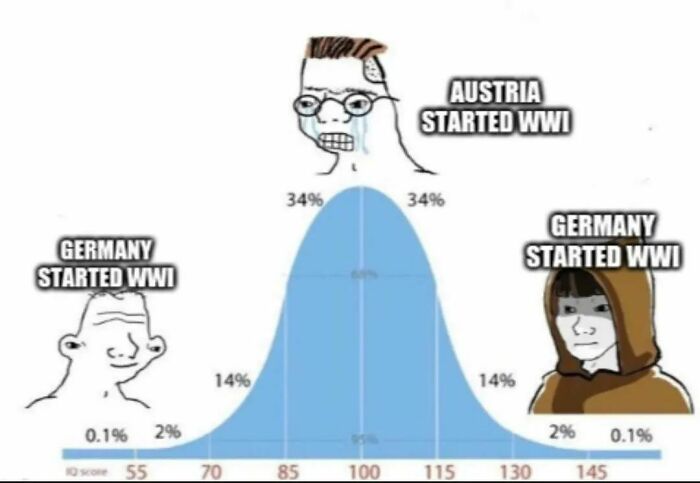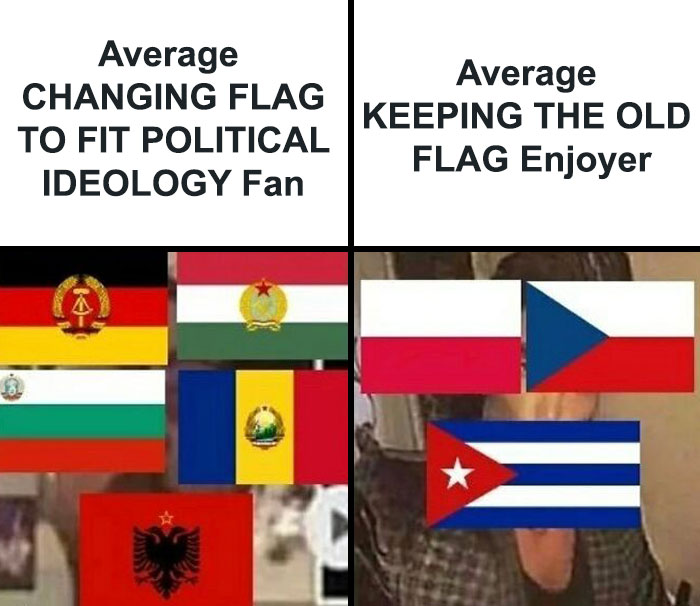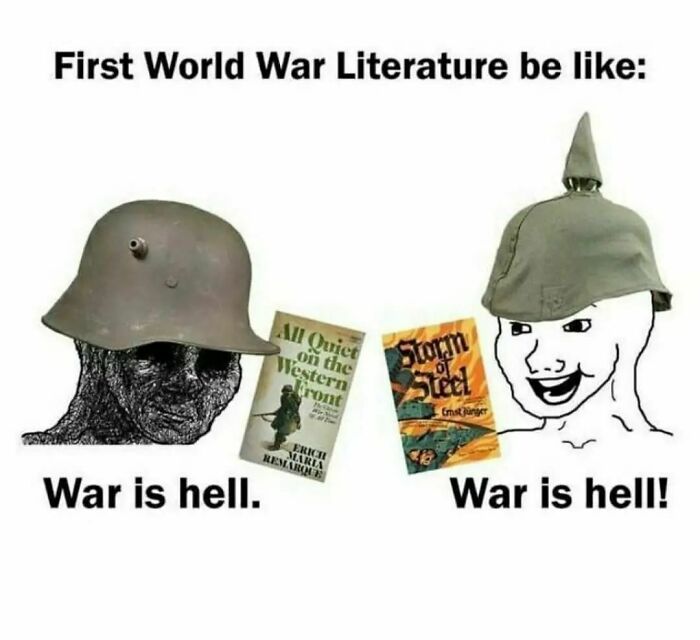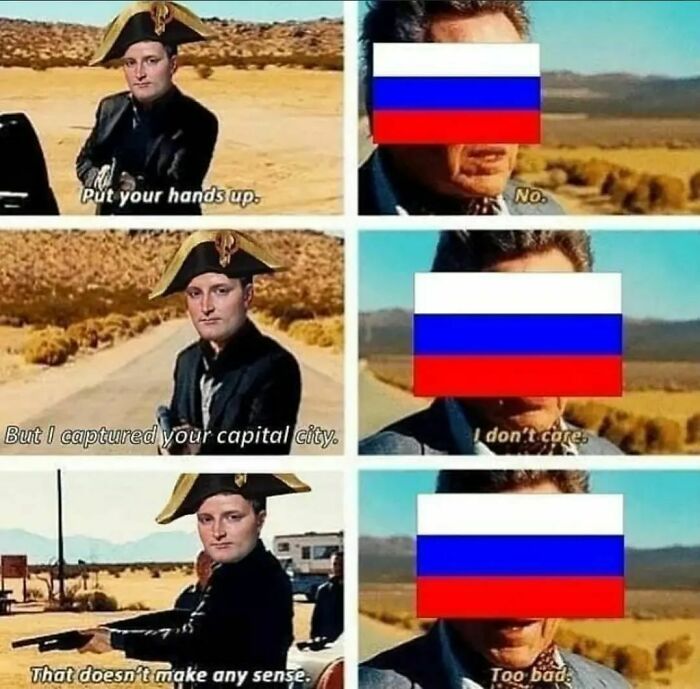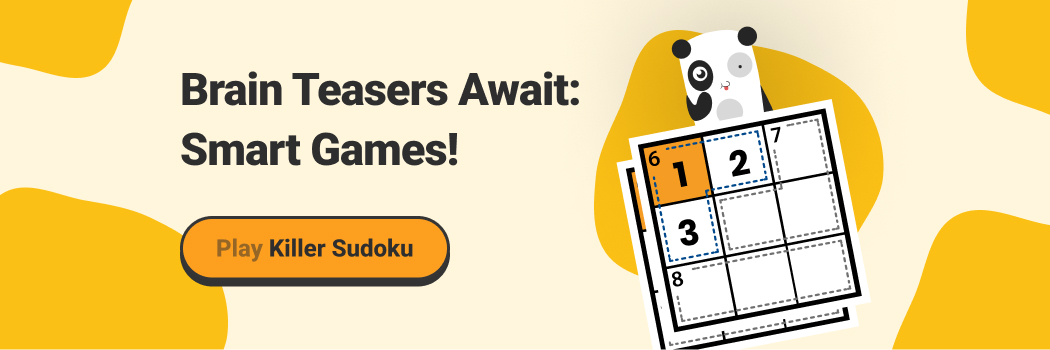
“That Wasn’t Me. That Was Germany”: 50 History Lessons, As Shared By ‘History Told In Memes’
While history might seem like a boring subject to some, many would argue that it is absolutely fascinating. But no matter which side you belong to, you ought to admit that learning history with the help of memes can be quite fun.
Nowadays, those interested in history-based memes have many options to choose from. But today we want to shed light on the ‘History Told In Memes’ Instagram account, and some of the pearls it has shared with history enthusiasts online. Covering everything from wars to royalty and so much more, the posts are both entertaining and informative, so if you’re curious to browse them, wait no longer and scroll down to find them on the list below.
On the list below you will also find Bored Panda’s interview with Assistant Professor of History at the Department of History, Philosophy, and Geography at Columbus State University, Dr. Laura Davis, and Professor of History at the University of Massachusetts Amherst, Dr. Samuel J. Redman, who were kind enough to answer a few of our questions about history.
This post may include affiliate links.
Discussing the significance of history with Bored Panda, Dr. Laura Davis emphasized that it is literally all around us. “It's the lived experiences of the people we are talking to, the buildings we walk by every day, the historic monuments and markers we drive by and don't always notice, and the murals on the side of a building.”
She noted that the past shapes, impacts, and informs the present. Therefore, history helps us make informed decisions about the present. “The knowledge of history helps us to contextualize the ever changing and often chaotic present by allowing us to understand change over time, cause and effect, and contingency,” she said, adding that by studying history, we can better understand how and why we got to a specific moment in time. “To quote the American Historical Association, #EverythingHasAHistory.”
“Understanding history allows us to gain invaluable critical thinking skills: contextualization, analyzing problems, evaluating evidence, and debating,” Dr. Davis continued. “It helps us gain cultural awareness and empathy for those who may be different from us. It teaches us about both the past and the present, allowing us to see patterns and to understand cause and effect—-and how and why things are the way that they are. And, history can even help us understand ourselves better.”
Too few people got the joke. They were both shot in the head hence an "open mind".
JFK was killed for opposing the perpetuation of the military industrial complex. You don't side against thebiggest war mongers in the world and expect to stay breathing.
That's not true! Bill Clinton and Barack Obama were, in my opinion, good presidents, and they are not dead. There is still hope!
This is incredibly accurate. The US built some brutalist stinkers in that era too. There are a couple in my city.
Dr. Samuel J. Redman seconded the idea that knowledge of history can help us understand today's happenings. “Students of history learn to build up an important muscle, sometimes called ‘historical thinking.’ Through history, we often come to a better understanding of what has motivated people throughout time and what things challenged them,” he told Bored Panda.
“We also learn that we are not necessarily alone in terms of the emotions we experience or the challenges we face. Previous generations of humans have dealt with many of the same challenges. Those who have spent time learning about and thinking through history also tend to develop greater empathy and a better understanding of the richness of human perspectives and ideas. We learn about the forces that have shaped our world and that many of them are still active, influencing the world in which we live today.”
It’s no secret that many people nowadays get their knowledge from online sources, be it history or any other subject they’re interested in. But when browsing the loads of information, it’s crucial to make sure that the sources are reliable.
“For better or worse, many people get their history from the online world: recorded lectures on YouTube, informative TikToks, social media accounts that recount past events or share primary sources, web sites for museums and historic sites, and online articles like this one that engage in historical content. The issue of this, of course, is that not all accounts are trustworthy or based on historical data,” Dr. Davis pointed out.
“Just as we train our students to analyze primary sources to understand the creator's intent, audience, message, and historical context, we need to be critical of the online sources where we learn our history. Who is creating it? Why are they creating it? Where are they getting their information from?”
So, is Huawei a Chinese phone, so it's showing how they pretend it didn't happen?
“Critical thinking means applying some degree of skepticism to all sources, but this is especially important when applied to sources authored online by non-experts,” Prof. Redman emphasized, discussing the reliability of online sources.
“Who created this source? What motivated them? What is the evidence behind the claims being made? What are the perspectives, points of view, or biases that are being expressed in this content? Can this information be verified by another, potentially more reliable source? With a great deal of online content such as memes, viewers are never given the chance to see the evidence behind these claims. What sources are being used behind this content? Without the ability to look deeper, viewers rarely check the veracity of the claims being made by many history-oriented memes.”
According to Dr. Redman, social media is a mixed bag for learning about history. “Without fact-checking, peer review, or any significant regulation, social media tends to favor stories that sound convincing, rather than stories we know to be true,” he noted.
“These stories sometimes contain grains of truth while also being wildly misleading or even inaccurate. Sometimes social media content is merely copied from another inaccurate source. I've noticed that many recent history videos posted online are written by artificial intelligence (AI). These tend to aggregate similar stories posted online and amalgamate them into ‘new content.’ But much like the weird human-like photos (with six fingers) that AI frequently generates, something within these AI-generated videos is usually a little ‘off.’
“On the other hand, social media has the potential to connect people with stories that interest them, especially in introducing them to stories with which they are unfamiliar,” the expert added. “Social media also has a global reach, introducing audiences to new stories, aided by rich visuals, and opening the door to added curiosity.”
My father lied about his age, joined the US Army at age 16, and got sent to the Korean War. He was wounded in combat twice. The second time was so bad that he spent about seven months in a hospital. He left the Army on a medical discharge as a disabled veteran just after his 18th birthday. He suffered pain from his war wounds every day for the next 65 years until he died.
While some online sources can be a double-edged sword for history enthusiasts, factually correct memes tend to do more good than harm. “I think people can benefit from history-focused memes,” Asst. Prof. Davis told Bored Panda. “Memes can be an effective way to engage in history-based humor and draw people into the past. Memes often grab our attention, make what we are learning more memorable, and can make people, events, and ideas of the past seem more relatable to the present.
“I think the key is to take things a step further and then share more historical information about the event, place, or person highlighted in the meme. So, for example, a meme about World War II could also include a link to the National World War II Museum or a book about the conflict for more information,” she suggested.
“Funny memes shouldn't be the only way we learn about history, but they do have the potential to open the door for educators to reach new audiences,” Dr. Redman noted, talking about the role memes and humor play in regards to educating oneself about history.
According to him, humor can be incredibly impactful in learning history. “People tend to learn better when they are plugged in and sincerely interested in the things being taught. Humor in teaching and storytelling tends to keep us engaged. In many times and places throughout history, amusing stories have been told not just to entertain, but also to make us think.
“Of course, not all histories lend themselves to humor in their being recounted, human lives also feature remarkable drama, tragedy, and sadness,” the historian added. “It is also the case that during many of the darkest moments in human history, people have sought out humor as an escape or a way to navigate life's many challenges.”
As James May described it; Belgium, a country they invented so Britain and Germany could sort out their differences.
I'm way more upset about the codexes. Most of the contents of the library of Alexandria was also fond elsewhere. Almost the entire recorded history of multiple nations was destroyed by the Spanish because they weren't Catholic.
Constellations were named before the Greeks. Cave painting of Taurus with the Pleides found in the Lascaux caves 16,500 years ago.
For Xiao Justinian, nice that you combine a chinese with a roman name. However, did you study Lu Xun yourself? I cite from Wikipedia: "Lu Xun was born into a family of landlords and government officials in Shaoxing, Zhejiang; the family's financial resources declined over the course of his youth. Lu aspired to take the imperial examinations, but due to his family's relative poverty he was forced to attend government-funded schools teaching "foreign education". Upon graduation, Lu studied medicine at Tohoku University in Japan, but later dropped out. He became interested in studying literature but was eventually forced to return to China because of his family's lack of funds. After returning to China, Lu worked for several years teaching at local secondary schools and colleges before finally finding an office at the Republic of China Ministry of Education." He was a minion of Mao and China, even though he knew about life from Japan.
It should also highlight that the Russians offered it to Great Britain first, to complete Canada, but they said no!
Isn't this a screenshot of the first ever uploaded clip on youtube? Hence... there is a first for everything.
Everyone, please don't downvote Hmmm hmmmm, they made a historical error, he wasn't trolling the internet. A simple correction was adequate.
People said it was daft to build a castle in the swamp, but I did it anyway! It's sent into the swamp... So I built another one, and that sank into the swamp... But the third one stood up!
Why else do you think we were the first to the moon and we are working so hard on Mars?
But DK saved most of our Jewish people by transporting them to safety in Sweden. So there's that.
Michael Collins, the first man to stay in the capsule and not walking in the moon
These "history" collections are usually inaccurate, somewhat racist, and very jingoistic.
I mean, you're not wrong; but it's BP, what did you expect?
Load More Replies...Most of these either glorify war or are so historically incorrect that they are insulting.
These "history" collections are usually inaccurate, somewhat racist, and very jingoistic.
I mean, you're not wrong; but it's BP, what did you expect?
Load More Replies...Most of these either glorify war or are so historically incorrect that they are insulting.

 Dark Mode
Dark Mode  No fees, cancel anytime
No fees, cancel anytime 









